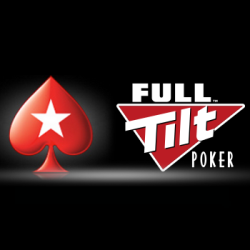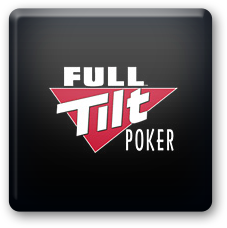Full Tilt Poker Reimbursement Process Now Completed

Back in April 2011, the Department of Justice shut down Full Tilt Poker stateside, leaving thousands of American players with millions of dollars frozen in their online poker accounts. By June, 2013, PokerStars agreed to purchase Full Tilt and refund the money as part of a deal struck with the DoJ, and while the process has been a long, drawn out affair, the epic journey has finally come to an end after the deadline to file a petition finally passed on September 3rd.
A disgraced website
When the original Full Tilt site was shut down on Black Friday it soon became apparent the online poker room no longer had in its coffers the $330 million belonging to its worldwide customers. The Full Tilt board of directors were subsequently held responsible for the startling revelation, having paid themselves huge fees whilst misleading players into believing their money was being kept safe in segregated funds away from the site’s payroll and expense accounts. Taking the brunt of the blame in the end was disgraced Full Tilt Poker CEO Ray Bitar, who subsequently had to forfeit $40 million worth of cash, property and other assets, but did avoid any real jail time having been sentenced to just time served, or the seven days he had spent in prison after his arrest.
Bitar had faced up to 145 years behind bars if convicted on all the charges, but a heart condition saw the judge go easy on him, and as the convicted bank fraudster and money launderer commented after his trial:
“I regret my actions. I know they were wrong and illegal. I am very sorry.”
Full Tilt Repayment process
Whereas those Full Tilt players classified as belonging to “rest of world” started receiving payments as early as November 2012, US players had to apply for their funds via a drawn out remissions process.
The first wave of Full Tilt refunds only started hitting US bank accounts at the beginning of this year, and since then US players have received more than $110 million in reimbursements. A big chunk of that total occurred on February 28th, 1,054 days after the DoJ originally seized the site’s dot-com domain, with Full Tilt Poker’s claims administrator Garden City Group (GCG) releasing around 27,500 payments worth $76 million on that date. In June, GCG then released a further $14 million in payments to more than 3,200 players with a handful of other payment rounds taking place in the meantime. As one Fult Tilt customer Josh ‘LitleBastrd’ Tieman commented after receiving his frozen funds:
“I had $440,000 on Full Tilt and when I saw the money actually hit my bank account, a really big smile came over my face. I guess I felt relief more than anything.. It was somewhere around 20-30% of my net worth, so I was still OK financially, but it was definitely a lot of money, and I was no longer earning near what I used to, so this was a big deal for me.”
Last in line the “professionals”
Last in line for repayments, however, were those players designated as “professionals” by Full Tilt who were subsequently given just one month to send in applications with the deadline set at September 3rd. As the FullTiltPokerClaims.com website explained at the time:
“It has been determined that players designated by Full Tilt Poker as ‘professionals,’ other than Team Full Tilt Players, will be able to submit Petitions for Remission to recover the portion of their account balance that is not attributable to compensation provided by FTP or affiliate revenue.”
Any money received via a business arrangement with Full Tilt Poker, however, could not be included in their claims, but strictly limited to money they personally deposited in their own accounts or earned through playing poker on Full Tilt.
These professionals were then required to provide the Garden City Group with a substantiate list of financial details, including emails, bank statements, and screen shots, before any payments would be made forthcoming. Nevertheless, while many in the poker community questioned whether professionals representing Full Tilt should even be eligible to receive compensation, the authorities eventually decided very few if any of them had any knowledge the site they were representing was not acting above board.










